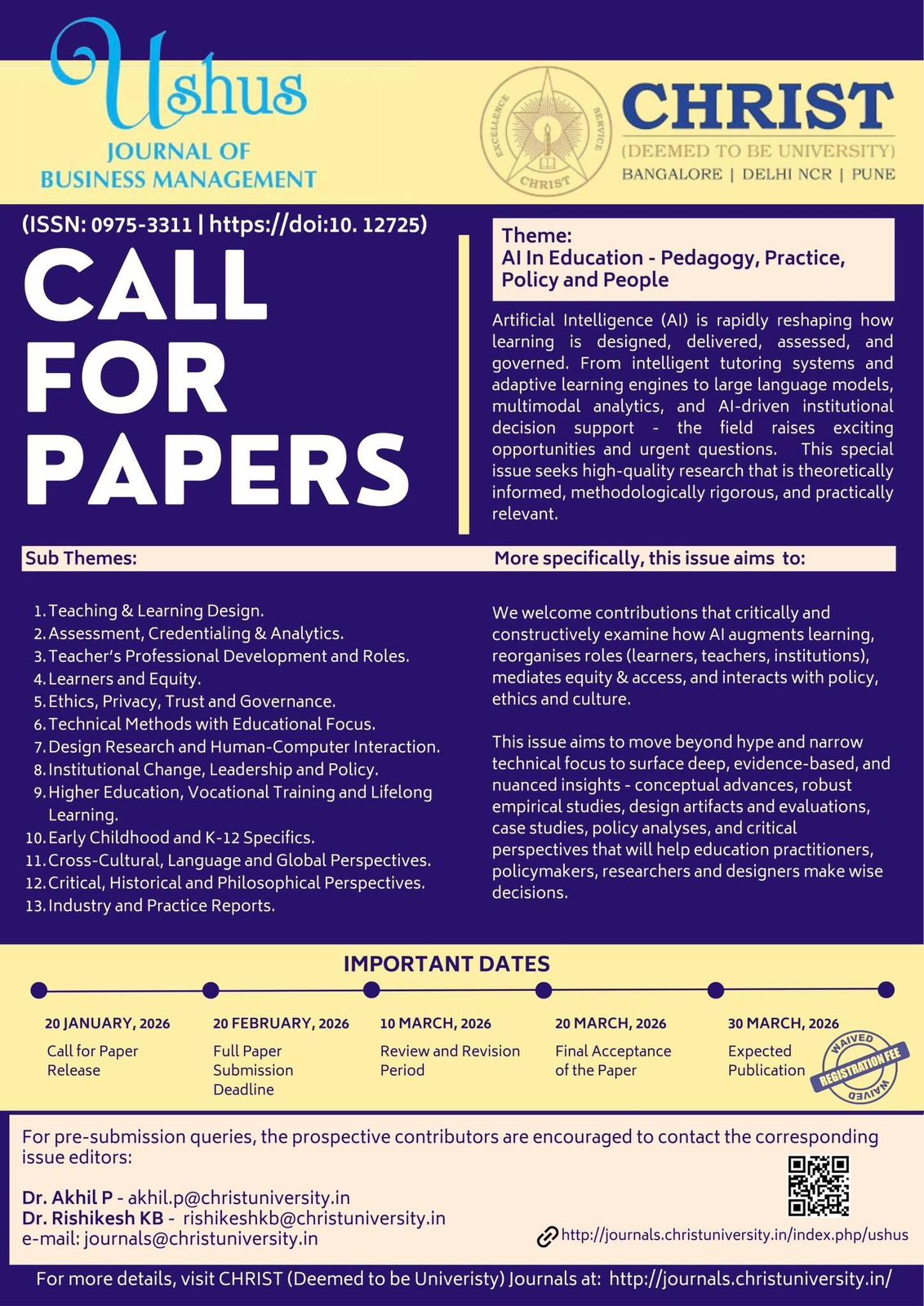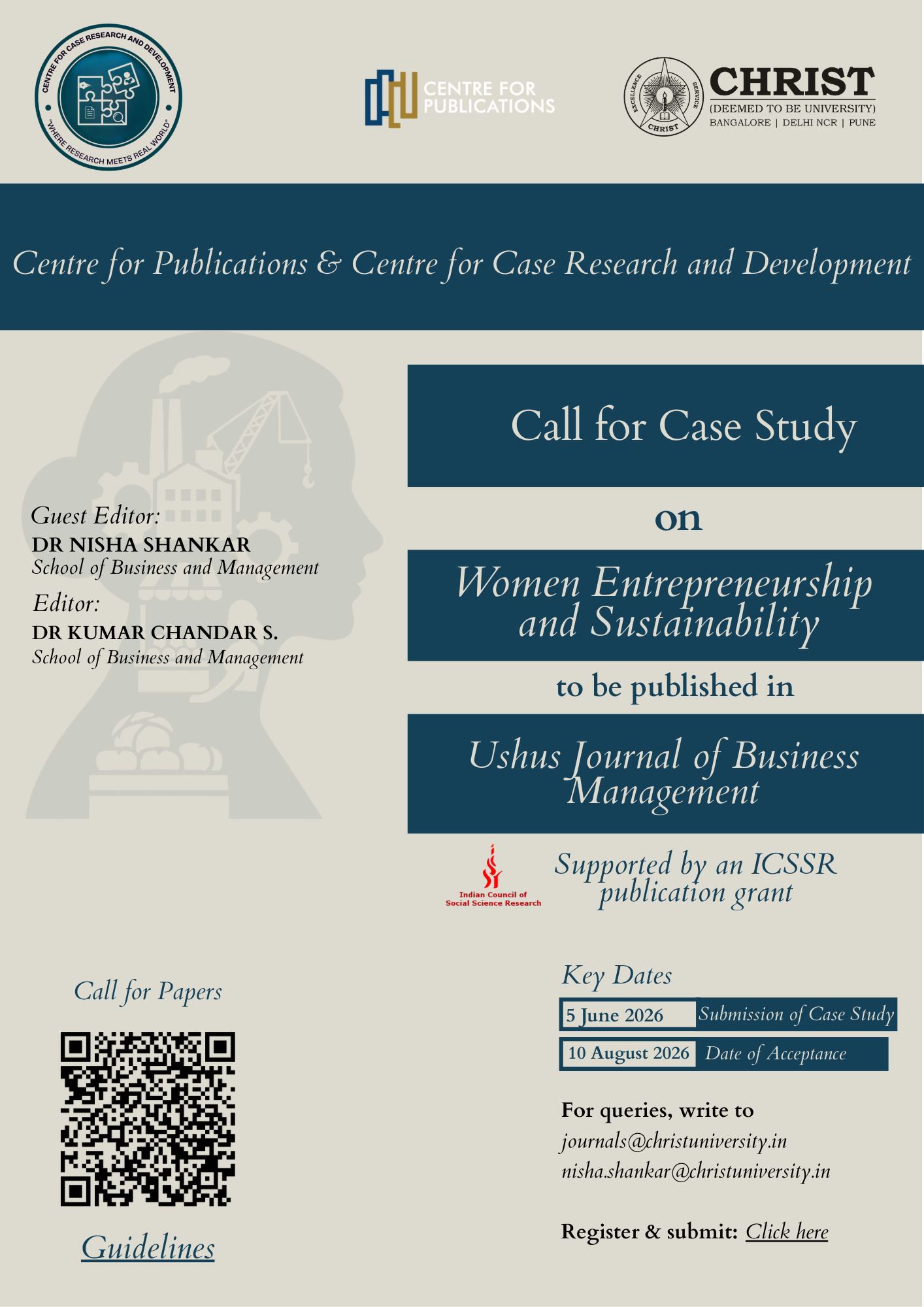Exploring the Impact of Psychological Well-being on Organizational Commitment and Job Satisfaction in the IT Workplace
DOI:
https://doi.org/10.12725/ujbm.66.2Keywords:
Psychological well being, organisational commitment, job satisfaction, it employeesAbstract
The present study investigates the complex interconnections between psychological well- being, organisational commitment, and job satisfaction within the specific domain of Information Technology (IT) personnel. The Information Technology sector is renowned for its dynamic and high-pressure work settings, underscoring the significance of comprehending the interconnectedness between the well-being of its personnel, their organisational commitment, and job happiness. The research study utilised a quantitative research methodology, wherein data was gathered from a heterogeneous sample of 475 information technology workers engaged in different organisations across multiple geographical locations. The study employed a set of proven tools to assess psychological well-being (developed by Indira J Prakash, Sudha Bhogle), organisational commitment, and job satisfaction with good psychometric properties. The results of our study demonstrate a significant and positive correlation between psychological well-being and job satisfaction. There is a positive correlation between employees who report better levels of psychological well-being and their overall job satisfaction. This implies that businesses within the IT sector ought to prioritise the implementation of techniques that cultivate the mental and emotional well-being of their employees in order to augment both job satisfaction and productivity. Moreover, the findings of the study indicate that organisational commitment serves as a mediator in the association between psychological well-being and job satisfaction. Employees in the field of information technology who exhibit a greater level of dedication and loyalty towards their organisation are more inclined to express higher levels of job satisfaction. Therefore, fostering a sense of loyalty and connection among employees might potentially yield favourable outcomes in terms of their overall job happiness, which can be influenced by their psychological well-being.
References
Allen, N. J., & Meyer, J. P. (1996). Affective, continuance, and normative commitment to the organization: An examination of construct validity. Journal of Vocational Behavior, 49(3), 252-276.
Fredrickson, B. L. (2001). The role of positive emotions in positive psychology: The broaden- and-build theory of positive emotions. American Psychologist, 56(3), 218-226.
George, J. M., & Zhou, J. (2007). Dual tuning in a supportive context: Joint contributions of positive mood, negative mood, and supervisory behaviors to employee creativity. The Academy of Management Journal, 50(3), 605-622.
Judge, T. A., & Bono, J. E. (2001). Relationship of core self-evaluations traits—self-esteem, generalized self-efficacy, locus of control, and emotional stability—with job satisfaction and job performance: A meta-analysis. Journal of Applied Psychology, 86(1), 80-92.
Judge, T. A., Bono, J. E., Erez, A., & Locke, E. A. (2001). Core self-evaluations and job and life satisfaction: The role of self-concordance and goal attainment. Journal of Applied Psychology, 86(1), 80-92.
Judge, T. A., & Kammeyer-Mueller, J. D. (2012). Job attitudes. Annual Review of Psychology, 63, 341-367.
Keyes, C. L. (2002). The mental health continuum: From languishing to flourishing in life.
Journal of Health and Social Behavior, 43(2), 207-222.
Luthans, F., Youssef, C. M., & Avolio, B. J. (2007). Psychological capital: Developing the human competitive edge. Oxford University Press.
Meyer, J. P., & Allen, N. J. (1991). A three-component conceptualization of organizational commitment. Human Resource Management Review, 1(1), 61-89.
Meyer, J. P., & Herscovitch, L. (2001). Commitment in the workplace: Toward a general model. Human Resource Management Review, 11(3), 299-326.
Meyer, J. P., Herscovitch, L., & Topolnytsky, L. (2002). Affective, continuance, and normative commitment to the organization: A meta-analysis of antecedents, correlates, and consequences. Journal of Vocational Behavior, 61(1), 20-52.
Meyer, J. P., & Herscovitch, L. (2001). Commitment in the workplace: Toward a general model. Human Resource Management Review, 11(3), 299-326.
Ployhart, R. E. (2006). Staffing in the 21st century: New challenges and strategic opportunities.
Journal of Management, 32(6), 868-897.
Wright, T. A., & Cropanzano, R. (2000). Psychological well-being and job satisfaction as predictors of job performance. Journal of Occupational Health Psychology, 5(1), 84- 94.
Downloads
Published
How to Cite
Issue
Section
License
Copyright (c) 2024 Hemanthakumara V.

This work is licensed under a Creative Commons Attribution-NonCommercial-NoDerivatives 4.0 International License.



